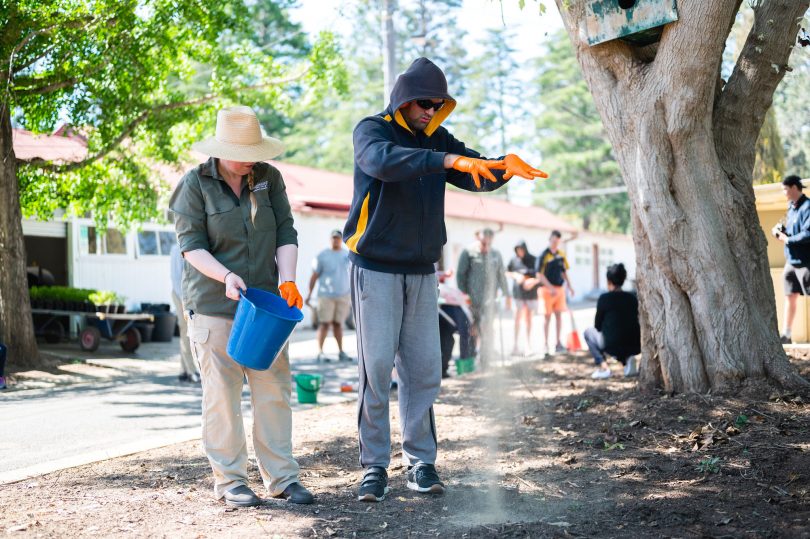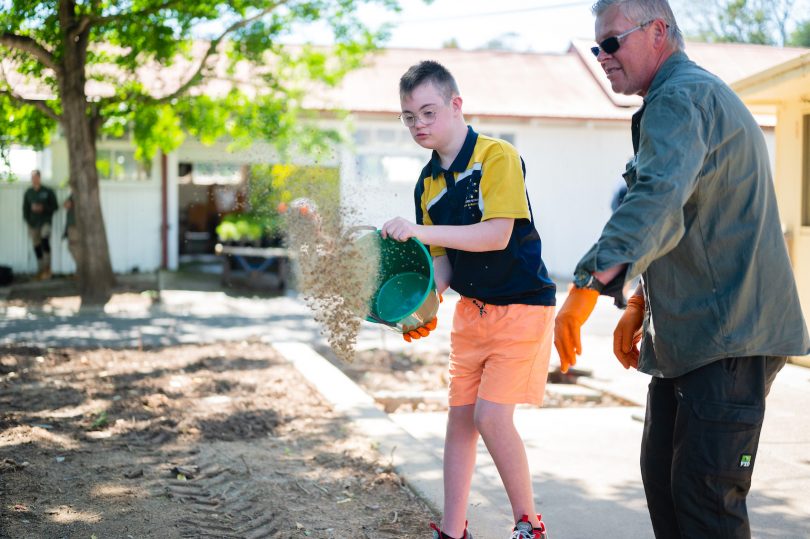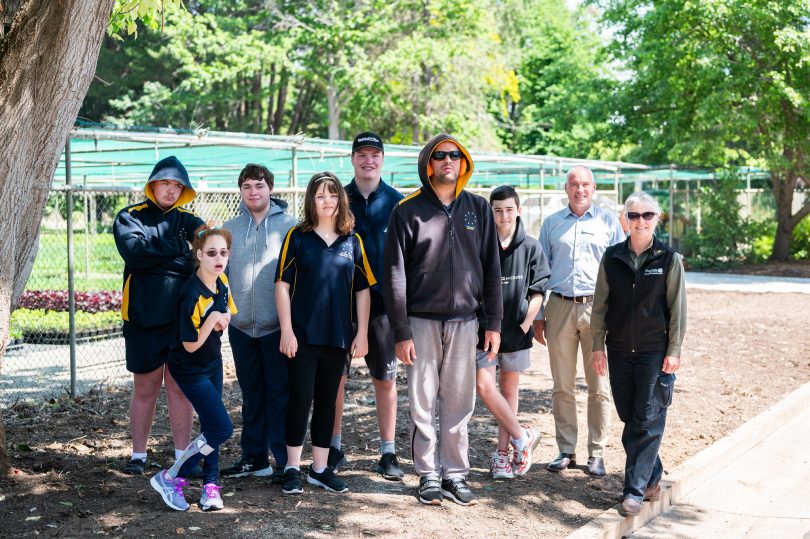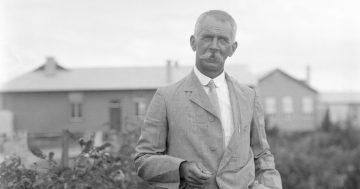
A student from the Woden School spreads seed during the launch of the Ngunnawal garden at Yarralumla Nursery. Photo: ACT Government.
A group of students from the Woden School have sown the seeds of a significant garden of Indigenous plants that will help people understand the roots of Ngunnawal culture in the ACT.
The first plants in the Ngunnawal garden at Yarralumla Nursery include traditional species that can be eaten or drunk, such as false sarsaparilla, the bulbine lily and the yam daisy.
An old box elder tree, classified as a weed in the ACT but estimated to be 40 years old and home to three possums, has been retained in the garden as it doesn’t set seeds unlike others of its species.
The Ngunnawal Plant Use field guide book was also used as a reference for the garden and for learnings on how Indigenous people traditionally used plant resources of the region for food, medicine, tools, weapons, fire, water, fibre, dye, paint and ceremonial purposes.
Yarralumla Nursery director Jane Carder helped establish the garden with a staff member of Ngunnawal decent, along with Tyrone Bell, from Thunderstone Aboriginal Cultural Services, and Adam Schipp, from Yurbay, which connects people with local food and medicine plants from the region.

A student from the Woden School spreads seeds and growing medium on the Ngunnawal garden. Photo: ACT Government.
Ms Carder said the garden will become a readily accessible resource to grow traditional plants and for workshops on Ngunnawal plant use.
“By working with Tyrone and Adam, they’ve come up with the design for the garden and ideas on how they can work with the nursery to get Indigenous businesses such as theirs going,” she said.
On day one, students from the Woden School helped sow a green manure crop. They will soon get seed banks going, along with making garden art and beehives.
“It’s a fantastic learning project for these students and their country,” said Ms Carder. “In the next couple of weeks, we’re having a propagation day where the students will come back and plant some of the seeds that will go into the garden bed.
“They’ll also get to take some plants back to their homes and schools for planting, too.”
Ms Carder said the students, aged between 12 and 15, are really focused on the project which was launched in partnership with Ngunnawal elders as part of NAIDOC Week.
The project will also see more traditional plants used in Canberra’s streetscapes.

Students from the Woden School with staff from Yarralumla Nursery. Photo: ACT Government.
The Ngunnawal garden project began earlier this year with assistance from ACT Justice and Community Safety Directorate staff who removed a heap of ivy that had taken over the site.
Ms Carder said it’s been an important step in getting native plants back into the nursery.
“There are some great uses for these traditional plants, as well as understanding how they used to grow here before European settlement,” she said. “This garden is a small but significant representation of how the country used to look with a sea of yellow from all the daisies.
“We’re really only learning now what plants were important to Indigenous culture so by trying to get some of those plants back into our roadsides and garden beds, we can continue the learnings.”














